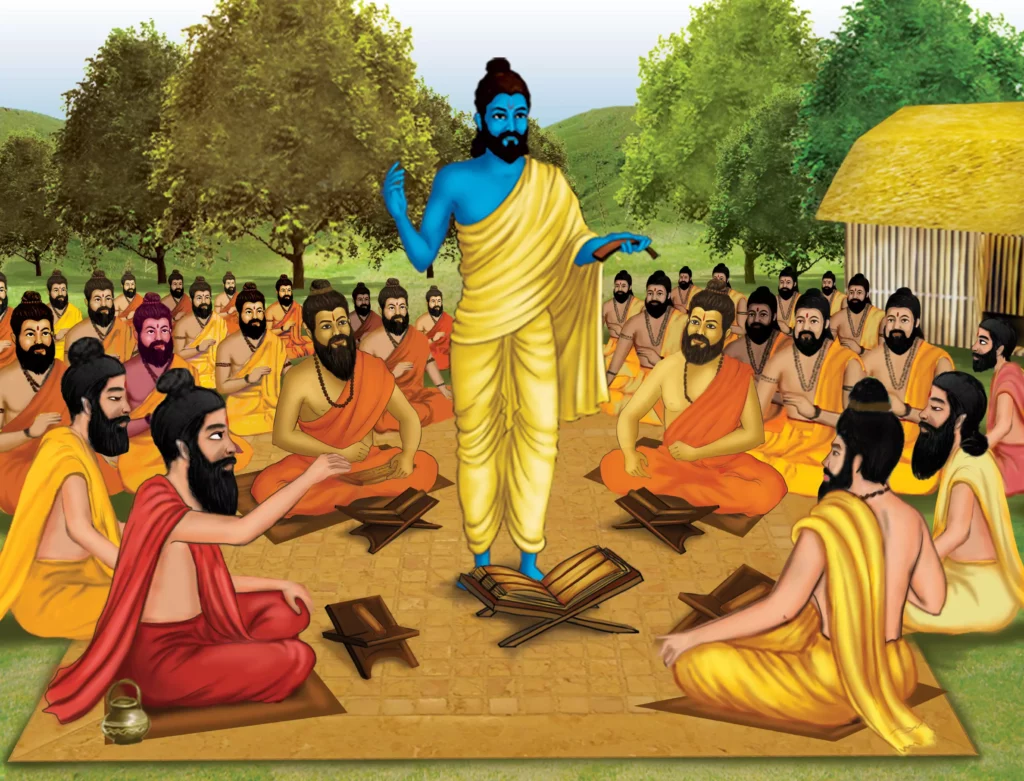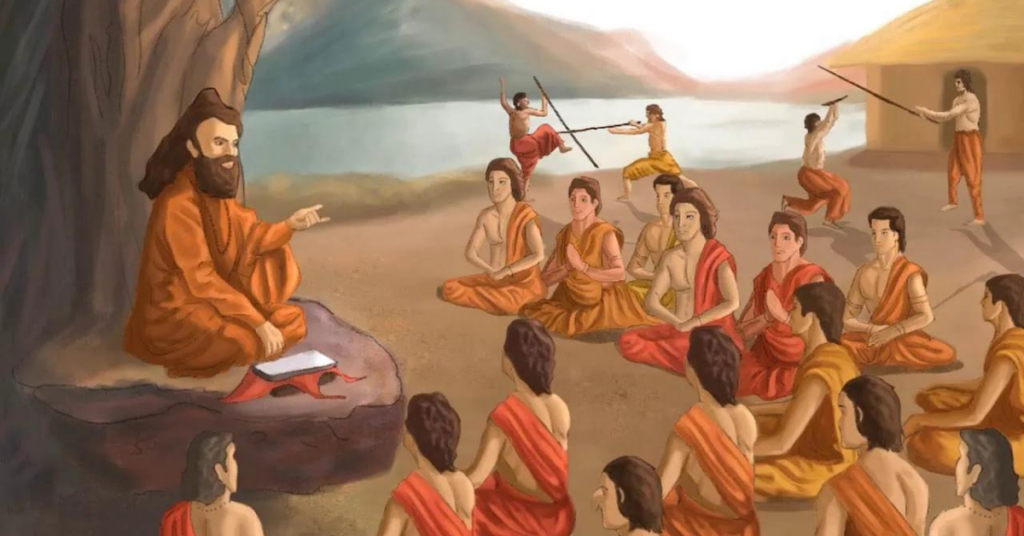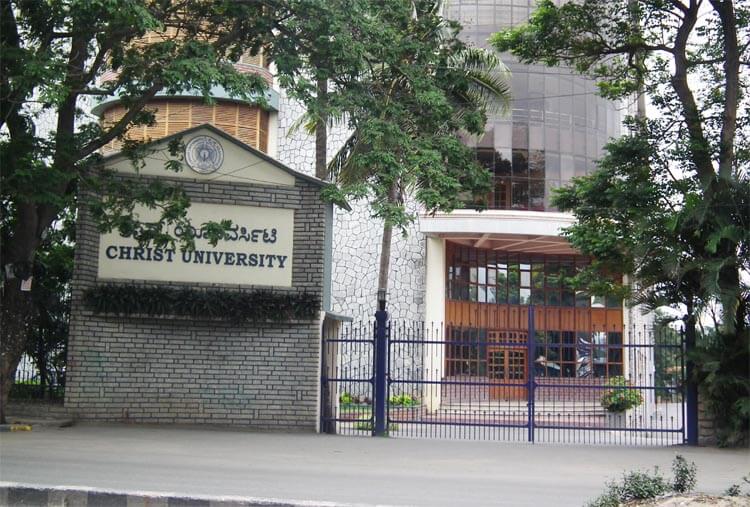Before the British colonial period in India, people were getting education from an ancient education system called ‘Gurukul’. According to a British survey, the literacy rate in India was 100%. But after the entrance of the modern education system by the Britishers Gurukul’s education system almost disappeared. Let us discuss Gurukul and its education system in detail.
What is Gurukul?
Gurukul is a traditional form of the education system that originated in ancient India. The word “Gurukul” comes from two Sanskrit words – “Guru,” which means teacher, and “Kul,” which means a place of learning.
In a Gurukul system, students would live with their teacher (Guru) in his home, away from their families. The Guru would provide them with education on various subjects such as language, mathematics, philosophy, spirituality, and life skills. The students would not only learn the subjects but would also learn about ethics, morals, and values that were essential for a good life.

The Gurukul system was based on a student-teacher relationship, where the teacher was considered as the ultimate authority, and the students were expected to obey and respect their teacher. The education was mostly oral, with the teacher delivering lectures and the students taking notes. The emphasis was on learning through experience, observation, and discussion.
The Gurukul system was prevalent in India until the British colonial era. Today, while the traditional Gurukul system is rare, some modern educational institutions in India still use the term Gurukul in their name or approach to education.
How Britishers Destroyed Gurukul Education System?
The Gurukul education system is an ancient Indian system of education that has been around for thousands of years. It is a system in which students live with their teachers in an ashram and learn through hands-on experience and personal instruction.
During the colonial period, the British did not necessarily destroy the Gurukul education system. Instead, they introduced their own education system and made it mandatory for Indians to attend English schools. This move was part of the British strategy to create a class of Indians who would be educated in Western ways and serve as intermediaries between the British and the rest of the Indian population.
As a result of the British colonial policy, many Indians began to see the Gurukul education system as outdated and backward. They were encouraged to adopt English as the language of education and to study Western subjects. This shift led to a decline in the Gurukul system, as fewer students enrolled in these schools and fewer teachers were trained in the traditional methods of teaching.
However, it is important to note that the Gurukul system did not completely disappear during the British colonial period. Many Gurukuls continued to operate, and there has been a recent revival of interest in the traditional system of education in India. Today, there are a number of Gurukuls in India that offer courses in traditional subjects like yoga, Ayurveda, and Sanskrit, among others.
How Gurukul Education System is Better?
The Gurukul education system is an ancient system of education that was prevalent in India before the arrival of British colonialism. In the Gurukul system, students lived with their teacher, or Guru, and received education in a holistic manner that emphasized not just academic learning, but also physical, spiritual, and ethical development.
Here are some reasons why the Gurukul education system is considered better by some:
Holistic Development: The Gurukul education system focuses on the holistic development of students. It emphasizes not just academic learning, but also physical, spiritual, and ethical development. This ensures that students are well-rounded individuals who are equipped to handle all aspects of life.
Personalized Attention: In the Gurukul system, the teacher-student ratio is low, which means that students receive personalized attention from their teachers. This ensures that each student’s individual needs are met, and they are able to learn at their own pace.
Hands-On Learning: The Gurukul system emphasizes hands-on learning, which means that students are encouraged to learn by doing. This type of learning is more engaging and helps students retain information better.
Close-Knit Community: The Gurukul system creates a close-knit community of students and teachers. Students live with their teachers, which creates a familial atmosphere that is conducive to learning.
Emphasis on Values: The Gurukul education system emphasizes the importance of values such as respect, humility, and self-discipline. These values help students become better individuals and contribute positively to society.
However, it is important to note that the Gurukul education system may not be suitable for everyone. It is a traditional system of education that may not be compatible with modern lifestyles and career aspirations. Additionally, it may not be practical for large-scale implementation in today’s society.
Here Are the Top 5 Gurukul in India
While the traditional Gurukul system has largely disappeared in modern times, there are still some institutions in India that follow this ancient education system. Here are some of the top Gurukuls in India:
1. Tapovan Sanskrit Mahavidyalaya: Located in Rishikesh, Uttarakhand, Tapovan Sanskrit Mahavidyalaya is one of the oldest and most renowned Gurukuls in India. It offers courses in traditional Indian knowledge systems such as Sanskrit language, Vedas, Upanishads, Yoga, and Ayurveda.
2. Arsha Vidya Gurukulam: Arsha Vidya Gurukulam is located in Coimbatore, Tamil Nadu. It offers courses in Vedanta, Sanskrit, and other traditional Indian knowledge systems. The Gurukulam is known for its strict adherence to traditional Gurukul practices.
3. Chinmaya Vishwavidyapeeth: Chinmaya Vishwavidyapeeth is located in Kochi, Kerala. It offers courses in Vedanta, Sanskrit, Indian philosophy, and other traditional Indian knowledge systems. The Gurukulam is affiliated with the Chinmaya Mission, a non-profit organization that aims to promote Indian culture and spirituality.
4. Sandipani Vidyaniketan: Sandipani Vidyaniketan is located in Ujjain, Madhya Pradesh. It was founded by the Art of Living Foundation and offers courses in Vedic studies, Sanskrit language, Yoga, and other traditional Indian knowledge systems.
5. Parmarth Niketan Gurukul: Parmarth Niketan Gurukul is located in Rishikesh, Uttarakhand. It offers courses in Vedic studies, Sanskrit language, Yoga, and other traditional Indian knowledge systems. The Gurukulam is affiliated with Parmarth Niketan, a spiritual organization that promotes Hinduism and spirituality.
In my opinion, the ancient Gurukul’s education system which was developed based on our holy books by the great Indian Rishi’s and Munies is better than the current education system. What are your own thoughts about Gurukul’s education system? Please write in the comments below.







